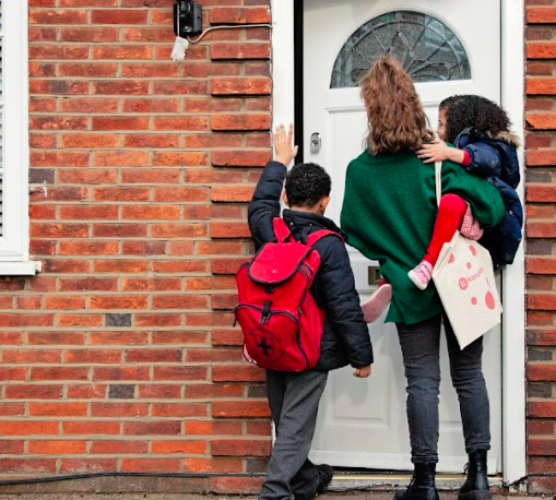Is your child starting Reception this year? Our expert guide is Niki Page, a Reception teacher with over 10 years of experience and an EYFS (Early Years Foundation Stage) phase leader, rated Outstanding by Ofsted, shares with us how to get your child off to a great start in this new school year.
Settling in and making friends is a big worry for parents, school is, after all, where your little one learns the bulk of their social skills. Personal, social and emotional development is one of the cornerstones of Reception’s curriculum, and the foundation for achieving other learning goals.
Here are tips for getting the first few weeks of Reception off to a great start.
What can I do to help my child settle in faster?
Most reception classes will try to keep children in their preschool or nursery groups so they have familiar friends from day 1. Your child might have also been invited to taster days to help them settle in faster. Some schools may offer you ‘stay and play’ sessions, which will give you the opportunity to familiarise yourself with the classroom and facilities available.
Where you can, try to make the most of these opportunities to link home and their new school setting as it can help your little one settle in faster.
What should I expect from my child during the first couple of weeks?
They will likely be extremely tired and maybe grumpy too! Starting school is a huge step for them and for parents. Try your best not to project any anxiety you may feel onto them, helping it to feel like an upbeat and a positive experience. Its hard to say goodbye at the gate, but they really will have fun meeting new people and getting used to a new environment.
When they get home, your child may or may not want to talk about their day, as much as you’ll be desperate to know every detail. Let them tell you freely at their own pace. Often this will be at bedtime, so be patient.
How will I know they are making friends?
At this age and stage of development children tend to play alongside each other. The more confident children will chat to their friends or give a running dialogue of what they’re doing during play.
Don’t worry if your child is not that confident yet – we often see them quietly join in with the play dough or on the floor with the cars. They’ll sit down at a table or dolls house, for example, and watch and observe all that’s going on until they are confident to join in. Throughout the year children will start to listen and join in with others’ conversation when they feel ready.
How will the school deal with difficult behaviour?
A great part of children’s time in reception is spent on developing their personal, social and emotional development. They learn to share and take turns, they’ll learn class rules, routines and boundaries at a very early age. They’ll quickly learn what is/isn’t acceptable behaviour.
In my experience, if they do something that upsets another child, staff will gently remind them of accepted behaviour and encourage them to say sorry. The focus is always on the action and not on the child themselves.
What if they need the toilet or can’t dress themselves?
It’s a great help to staff if your child is confident to use the toilet themselves and carry out the majority of their self-care. Obviously accidents will happen and staff won’t be phased about this. Check your school’s policy for intimate care and changing your child. As always, we encourage the children to be as independent as they can be, bearing in mind what is appropriate as they may have just turned 4 over the summer.
The same goes for changing for PE and putting coats on. Often, buttons and zips can be tricky and lots of encouragement is needed. Anything you can do at home to practice with your child would be greatly received!
As a side note, an after school nanny can make a big difference to your child’s transition back to school and can provide them with the emotional break they need from school, giving them time to rest and recoup at home.
Get ready for back to school
If you’re feeling overwhelmed about what to do with your child after school, in terms of childcare, this article is great at explaining which options you have available.
We wish you and your children all the best of luck as they begin their school career!



